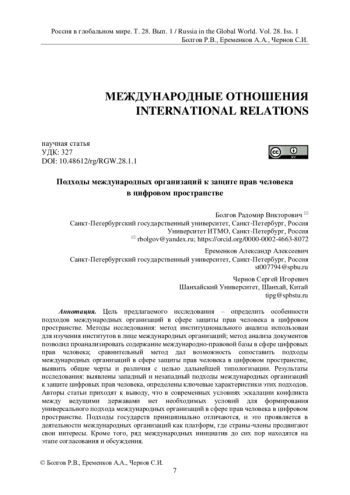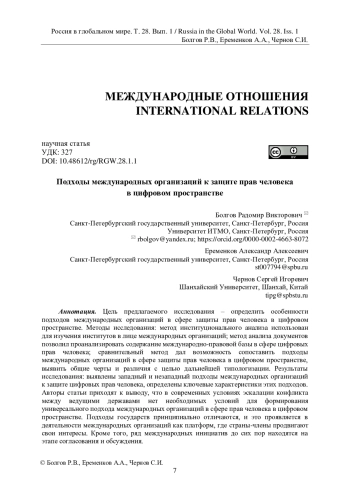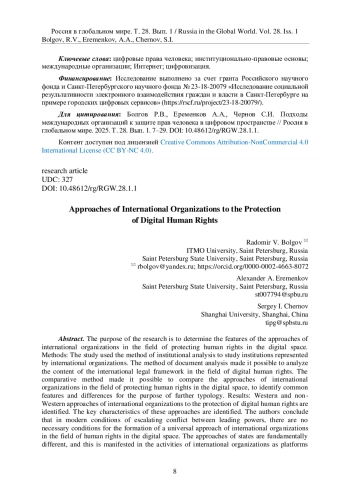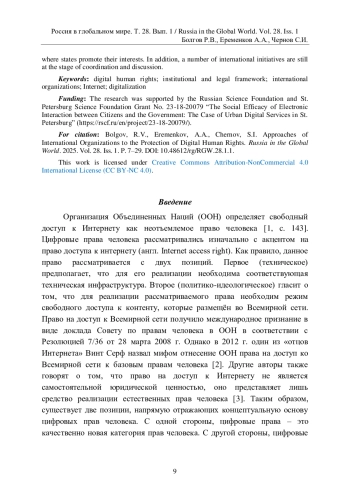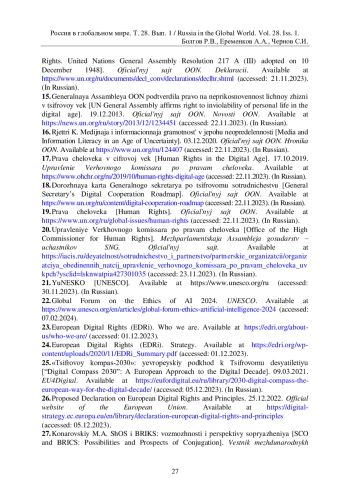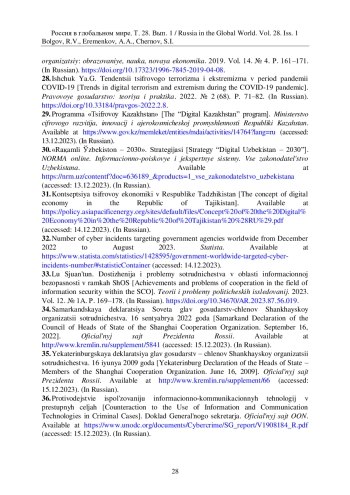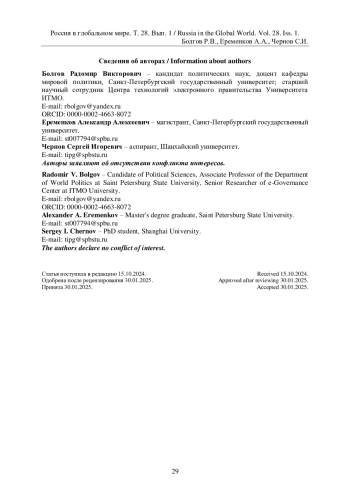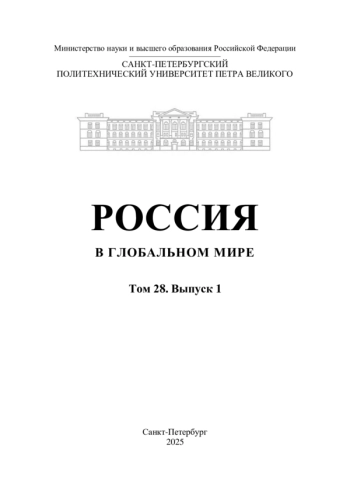Цель предлагаемого исследования – определить особенности подходов международных организаций в сфере защиты прав человека в цифровом пространстве. Методы исследования: метод институционального анализа использован для изучения институтов в лице международных организаций; метод анализа документов позволил проанализировать содержание международно-правовой базы в сфере цифровых прав человека; сравнительный метод дал возможность сопоставить подходы международных организаций в сфере защиты прав человека в цифровом пространстве, выявить общие черты и различия с целью дальнейшей типологизации. Результаты исследования: выявлены западный и незападный подходы международных организаций к защите цифровых прав человека, определены ключевые характеристики этих подходов. Авторы статьи приходят к выводу, что в современных условиях эскалации конфликта между ведущими державами нет необходимых условий для формирования универсального подхода международных организаций в сфере прав человека в цифровом пространстве. Подходы государств принципиально отличаются, и это проявляется в деятельности международных организаций как платформ, где страны-члены продвигают свои интересы. Кроме того, ряд международных инициатив до сих пор находятся на этапе согласования и обсуждения.
The purpose of the research is to determine the features of the approaches of international organizations in the field of protecting human rights in the digital space. Methods: The study used the method of institutional analysis to study institutions represented by international organizations. The method of document analysis made it possible to analyze the content of the international legal framework in the field of digital human rights. The comparative method made it possible to compare the approaches of international organizations in the field of protecting human rights in the digital space, to identify common features and differences for the purpose of further typology. Results: Western and nonWestern approaches of international organizations to the protection of digital human rights are identified. The key characteristics of these approaches are identified. The authors conclude that in modern conditions of escalating conflict between leading powers, there are no necessary conditions for the formation of a universal approach of international organizations in the field of human rights in the digital space. The approaches of states are fundamentally different, and this is manifested in the activities of international organizations as platforms where states promote their interests. In addition, a number of international initiatives are still at the stage of coordination and discussion.
